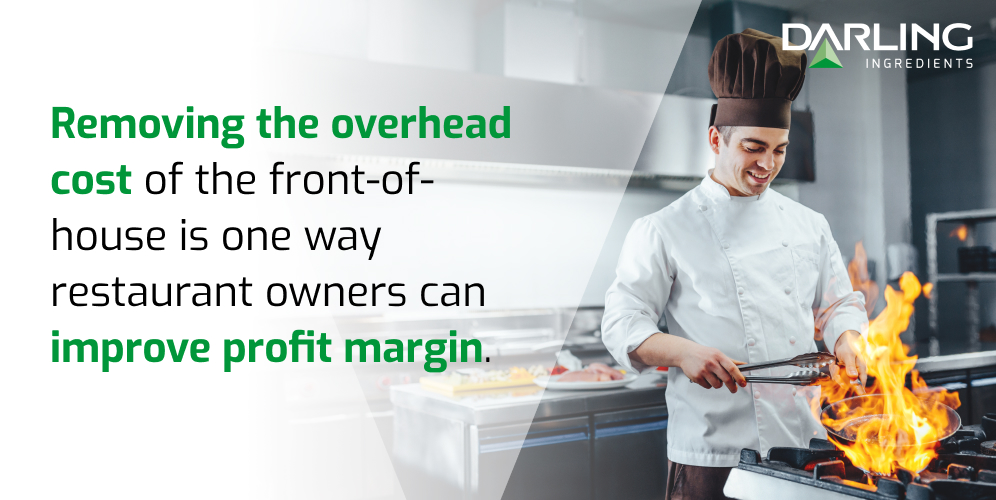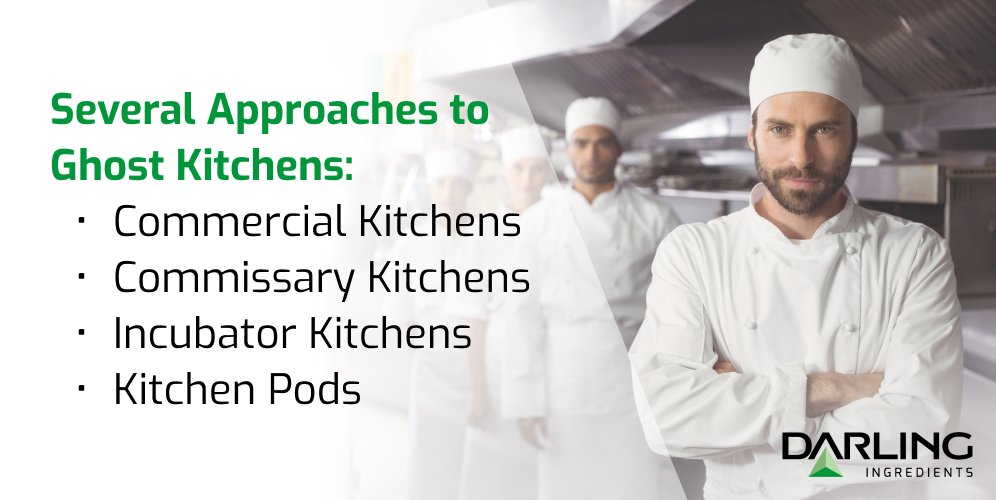What Exactly is a Ghost Kitchen?
Ghost kitchens are a relatively new business model in the restaurant industry that removes the need for seating, front-of-house staffing, and a storefront. That’s because ghost kitchens are just kitchens.
There’s no option for dine-in or take-out. Instead, their food is only available through an online order. Third-party delivery apps like DoorDash handle sales and deliver meals for them. In some rarer instances, a ghost kitchen might hire delivery drivers, but in most cases, it’s sourced to a third party.
There are other names for ghost kitchens including:
Virtual kitchen
Cloud kitchen
Dark kitchen
Some of those names sound a bit ominous but don’t worry, these new ventures have to follow the same regulations as traditional restaurants. Ghost kitchens are a legal and legitimate business model.
Why Do Ghost Kitchens Exist?
During the COVID-19 pandemic, there were a lot of behavioral changes from consumers. People couldn’t dine out, so they started ordering food more than they did before. This trend has slowed down, but delivery is still a popular option amongst those wanting to stay in.
Dark kitchens were around before 2020, but they became more common when people were in lockdown. Now, some fast-food restaurants have adopted the ghost model to keep up with delivery demands. Ghost Kitchens continues to be on the rise, ranking number two for 2024, among other top trends such as contactless ordering and AI.
Removing the overhead cost of the front-of-house is one way restaurant owners can improve profit margin. With the right amount of planning, ghost kitchens can be very profitable.
Now restaurant owners and entrepreneurs have the option to never open a seating area and instead choose a kitchen-only business.

How Do Ghost Kitchens Work, and What Can You Do to Open One?
There are several approaches you can take when utilizing this method of restaurant operations. There is often overlap between physical restaurants and ghost kitchens, but it depends on how the owner chooses to operate.
This is a new way to serve food so there is no right or wrong way to do it. Feel free to mix and match whatever methods fit your needs.
Commercial Kitchens
Commercial kitchens are truly off-site restaurants. They are occupied and used by a single operation for excess food preparation or operating the delivery side of the business.
Commissary Kitchens
Commissary kitchens are commercial kitchen spaces that can be rented out for certain times either hourly, daily, or even seasonally. These kitchens are the most common form of ghost kitchens.
These kitchens are often shared with multiple ghost kitchens or brick-and-mortar restaurants. Not every restaurant is open for dinner, so they rent out their space to a ghost kitchen for dinner-time deliveries.
In some cases, commissary kitchens have multiple spaces for different ghost kitchens. In these locations, there are lockers that delivery people can access when picking up food.
This option is also used by food trucks or restaurants with very small kitchens that need more space to prep.
Renting out your kitchen means you’ll be producing more used cooking oil than before. You are responsible for the waste that your kitchen produces, even if it’s not your own.
Minimize confusion and frustration by receiving a Darling Ingredients Canada used cooking oil system. It will help your business and the environment.
Incubator Kitchens
Incubator kitchens are temporary kitchens used to test or soft-launch new food creations. These are sometimes attached to brick-and-mortar restaurants or stand-alone commercial kitchens.
Communities will often use these locations as a place to learn, jumpstart businesses, or used by businesses to prep large amounts of food.
Incubator kitchens can be used by ghost kitchens as their base of operations if there is an opening available.
Kitchen Pods
Kitchen pods are a transportable kitchen typically used for catering or other events. These kitchens exist somewhere between a food truck and an incubator. Think of it as a smaller, transportable version of a restaurant.
They are helpful for when you need more space or can’t prepare your food in your kitchen.

Even Ghost Kitchens Need Sustainable Waste Solutions
Permanent kitchens like commercial and commissary will likely have used cooking oil needs. Darling Ingredients Canada is available to help businesses of all kinds:
Entrepreneurs
Commercial kitchen managers and operators
If you own or manage any kind of kitchen, you are responsible for the waste your business produces. Let the pros handle your used cooking oil by partnering with Darling Ingredients Canada.
Contact Sales
For customer service inquiries call our toll free number (800) 263-0302
By submitting this form I agree to the privacy policy including the usage of contact details to contact me for marketing purposes.
